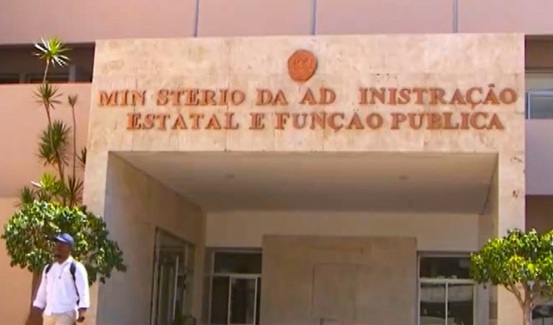Mozambican President demands transparency in payment to state suppliers
Mozambique to limit civil service hirings to one entry per every three exits

FILE - For illustration purposes only. [File photo: Idolo]
Mozambique expects to spend €2.85 billion on civil service salaries in 2025, an increase of 1.3% in one year, but the government will limit new hires to one per three exits, according to the budget proposal.
According to the proposed Economic and Social Plan and State Budget (PESOE) for 2025, whose analysis by the specialised commissions of the Assembly of the Republic in Maputo starts today, the total cost of salaries and wages amounted to 202.859 billion meticais (€2.811 billion) last year, and is expected to increase to 205.55 billion meticais (€2.85 billion) this year, equivalent to 13.3% of the estimated gross domestic product (GDP).
On February 21, Lusa reported that the Mozambican state’s spending on salaries and wages grew by around 40% in 2024, compared to the previous year, according to data from the government, which last june estimated that the total number of civil servants and state agents in Mozambique was 370,000.
“Within the scope of rationalizing public spending, the commitment to contain spending on salaries and wages and to stabilize public debt, which have been the main factors putting the most pressure on the State Budget, remains,” reads the budget document for 2025.
Therefore, it adds, “to ensure the containment of the wage bill in the short term and to provide a sustainable trajectory in the medium term, restrictions on new admissions will be reinforced,” as well as “reassessment of the subsidies granted” to State Employees and Agents (FAE), “and measures implemented to strengthen control of human resources in the Public Administration.”
“Public expenditure as a percentage of GDP is expected to fall to 30.7% in 2027, compared to around 33.2% of GDP in 2024, in line with fiscal consolidation objectives. In the medium term, operating expenses, particularly salaries and wages, pensions and debt service, will continue to represent a significant challenge to the sustainability of public finances”, the government acknowledges in the budget proposal, the first prepared by the executive led by Daniel Chapo, sworn in as the fifth President of Mozambique last January.
In order to “lower personnel expenses [wage bill] from 15% to 13.7% of GDP in the medium term”, the government undertakes in the PESOE to carry out an audit and proof of life, “with a specific focus on verifying and validating the Salary and Remuneration sheet”, as well as to review and “improve” current subsidies, “such as location and seniority allowances, to adapt to real responsibilities and categories and use them more effectively as incentives”.
In order to “ensure the rationalization of the workforce in the public sector”, the government defines that “new hires must comply” with the rule of “admitting one employee for every three employees who leave the public administration”.
In the PESOE, the Mozambican government forecasts GDP growth of 2.9% for 2025, an average annual inflation rate of 7%, exports of goods worth US$8,431 million (€7,379 million) and Gross International Reserves of US$3,442 million (€3,045 million), equivalent to 4.7 months of coverage of imports of goods and services, excluding megaprojects.
The state’s revenue for the whole year is expected to amount to more than 385,871 million meticais (€5,347 million), equivalent to 25% of GDP, and total expenditure to 512,749 million meticais (€7,107 million), corresponding to 33.2% of GDP, generating a budget deficit of 8.2%, equivalent to 126,878 million meticais (€1,759 million), financed in particular by issuing public debt.












Leave a Reply
Be the First to Comment!
You must be logged in to post a comment.
You must be logged in to post a comment.